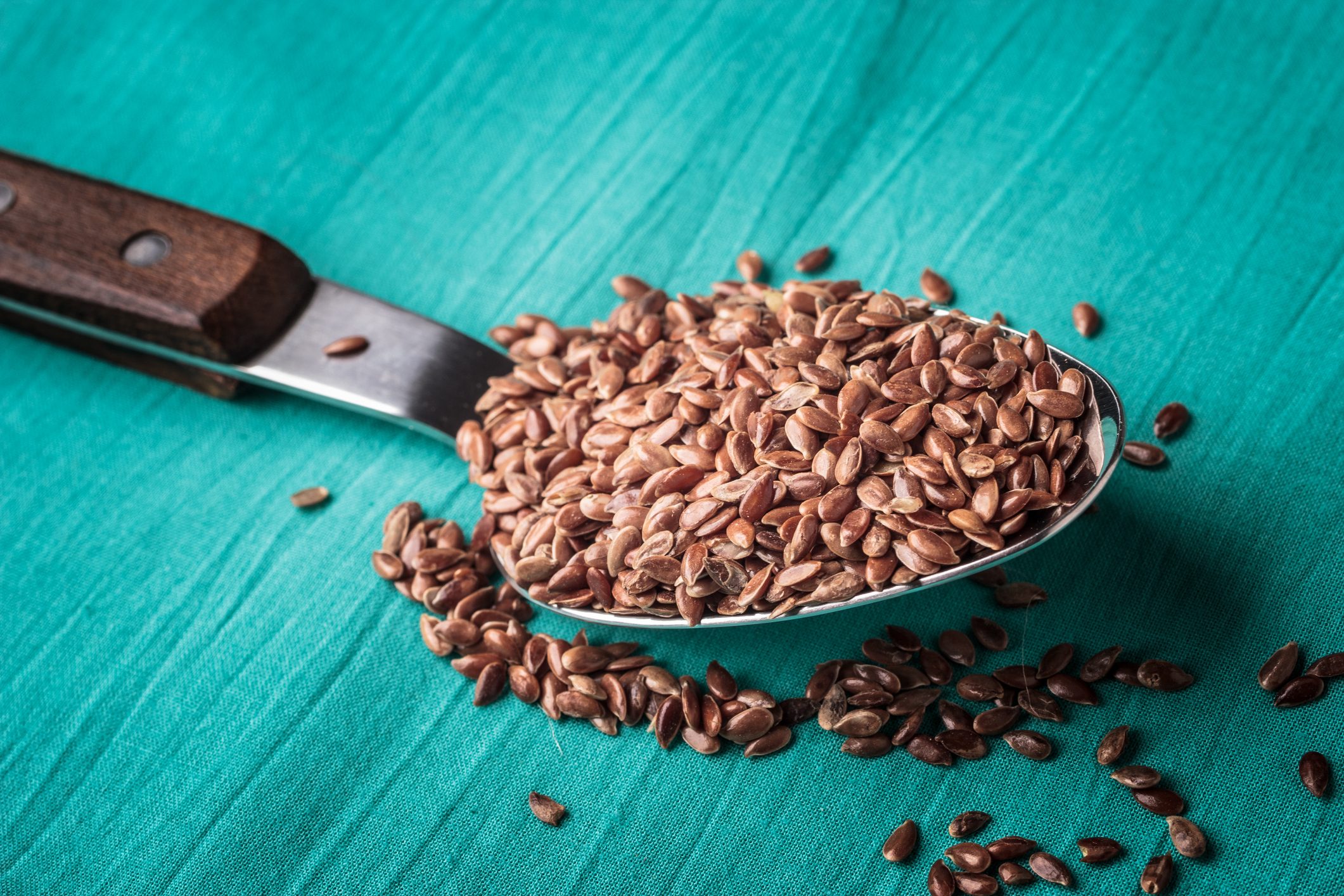7 Evidence-Based Benefits of Flax Seeds for Weight Loss
Read on to find out why you should try to add more flax seeds to your diet.
;Resize,width=742;)
There are so many “superfoods” around these days, that it can get confusing trying to find the right ones to suit you.
Flax seeds (also known as linseed), has proven benefits for health and weight loss. It’s also fairly inexpensive and easy to find – most supermarkets stock it on the nuts and seeds shelves.
There have been many studies on flax seeds as a dietary supplement, and it also has potential for helping to manage metabolic syndrome. Read on to find out why you should try to add more flax seeds to your diet.
1. May Lower Blood Pressure

There have been several studies indicating that regularly eating flax seeds can help lower blood pressure. While blood pressure isn’t directly the same as weight loss, the two are related. High blood pressure is also bad for overall health, and increases the risk of cardiovascular disease.
2. Can Increase Satiety

Flax seeds can help with weight loss by making your feel fuller for longer, which can help you to eat less overall. This is because flax seeds are high in fiber.
One study showed that subjects who drank a flax seed drink felt a significant decrease in appetite as well as feelings of being full much sooner than the control group.
3. Contains Metabolism-Boosting Lignans

Two foods are rich in lignans – flax seeds and sesame seeds. Flax is the better choice, because they contain eight times more lignans than sesame seeds.
Lignans are converted into a substance that has a mildly estrogenic effect on the body, which could prevent cardiovascular disease by lowering bad LDL cholesterol. Lignans also have anti-inflammatory and anti-carcinogenic properties.
It’s thought that lignans can lower glucose levels, which can lead to weight loss by controlling insulin spikes that can cause the body to store fat.
4. Omega-3 Fatty Acids

Flax seeds contain alpha-linoleic acid (ALA), which is an omega-3 fatty acid. ALA’s are converted by the body into other compounds that have been shown to lower the risk of cardiovascular disease.
Eating enough omega-3’s could help prevent obesity by boosting a hormone produced by fat cells that help regulate glucose and lipids. One tablespoon of flax seeds contains more omega-3’s than the RDI for women, and equals 100% of the RDI for men.
5. May Help Treat Hormonal Imbalances

The antioxidants in flax seeds could help treat and prevent symptoms of hormonal imbalance in post-menopausal women.
The symptoms include night sweats, mood swings, migraines, and hot flashes. Research shows that 2 tablespoons of ground flax seeds helped to improve symptoms of hormonal problems.
Weight loss, or weight gain, can be caused by hormones becoming unbalanced through stress, lack of sleep, medications, etc. Flax seeds can help to keep everything balanced.
6. Flax Seeds Are a Healthy Addition to Recipes

When you are trying to lose weight, it’s important to eat fruits, vegetables, and lean proteins. It’s also important to make meals that are filling and satisfying so that you are more likely to stick to your diet.
Baked goods are usually off-limits when dieting, but if you add flax seeds in place of eggs or fats, it’s a good way to make a recipe healthier. Flax seeds add fiber to your recipe, as well as reducing the glycemic index of food.
7. Flax Seeds May Help Burn Fat

Regular consumption of flax seeds is thought to stimulate thermogenesis, or fat-burning. Good fats, like those in flax seeds, help the brown fat cells to burn more calories, while bad fats have the opposite effect.
Considerations
Flax seeds are high in fiber, which is a good thing, but you have to make sure you’re not eating too much. 25-30 grams a day is enough for most people, and excessive fiber intake can cause diarrhea or nutrient malabsorption. If you already eat a lot of fiber through fruits and veggies, you may need to limit the amount of flax seeds you eat.
;Resize,width=767;)
;Resize,width=712;)
;Resize,width=712;)
;Resize,width=712;)
